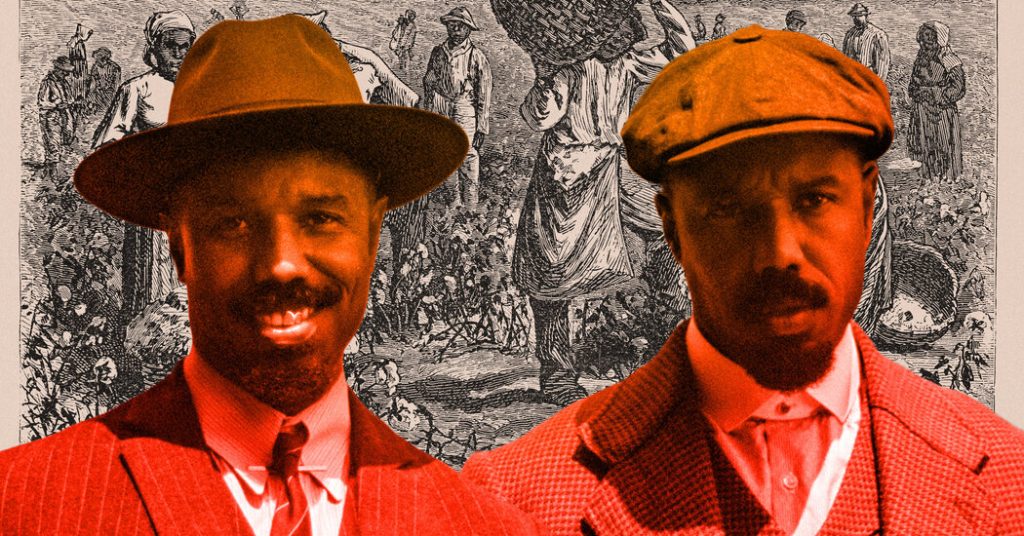In 2050, thanks to an advantageous deal he made with Warner Bros., Ryan Coogler will own the rights to “Sinners,” the Black Southern Gothic blockbuster he wrote and directed. The contract gave him final cut and a piece of the box office revenue right from the start, too. Owning his movie about Black ownership in the Jim Crow South was, Mr. Coogler has said, a nonnegotiable.
Since the film came out, these contract stipulations have been much discussed, even controversial. That has little to do with why “Sinners” is so enthralling to watch — after all it’s a genre-bending and -blending film, steeped in horror, blues and history, and even has vampires — but everything to do with the film’s central theme, and why it is so resonant: the art of the deal. Negotiation is a central thread in “Sinners,” a repeated motifabout the power and consequence of deal-making in America. (This essay includes spoilers for “Sinners.”)
The protagonists of “Sinners” are identical twin brothers nicknamed Smoke and Stack, both played by Michael B. Jordan, Mr. Coogler’s longtime collaborator. After serving in World War I and becoming involved with Chicago gangsters, the slick-talking duo return in 1932 to their Mississippi Delta hometown to set up a juke joint, enlisting their gifted cousin Sammie to play guitar. The town, Clarksdale, happens to also be the location of the crossroads where the legendary blues musician Robert Johnson supposedly sold his soul to the devil for mastery over his guitar. With a satchel full of cash and a truck full of liquor, the twins come back to the South having realized that “Chicago is Mississippi with tall buildings instead of plantations.”
Their for-us-by-us plan was to generate wealth by owning and operating a blues-drenched sanctuary for Black joy, a private escape from the daily terror of racial oppression. Many of the clientele are Black sharecroppers who have been forced into exploitative contracts by white landowners, a point made evident in “Sinners” when a customer tries to use wooden coins to buy a drink. The fake money is good only at the plantation store.
Nobody Black had the leverage to negotiate a good deal in the Jim Crow South. Despite the vampires in the film, the real monsters are the ordinary-seeming men, like Hogwood, the covert Klansman from whom Smoke and Stack buy the mill they are going to turn into the juke joint, who smile as they take your money and shake your hand, and have no intention of honoring the terms.
During this time, legalistic disfranchisement was common for Black blues musicians, who were often unaware of how royalties worked, or were intentionally not told how they worked, or were just given a bottle of booze as payment. Bessie Smith thought she was signing a lucrative deal in 1923 with a white executive, Frank Buckley Walker, who oversaw “race records” for Columbia. Walker crossed out the royalty clause in her contract, and Smith was given a fixed fee of $200 per recording; she thought that was a good deal for a Black musician at the time, unaware that white country artists on Columbia often had royalty agreements, even though Smith was more successful than many. Smith received a little less than $30,000 for the 160 recordings she made for Columbia even though her estimated sales reached over six million records in the 1920s.









